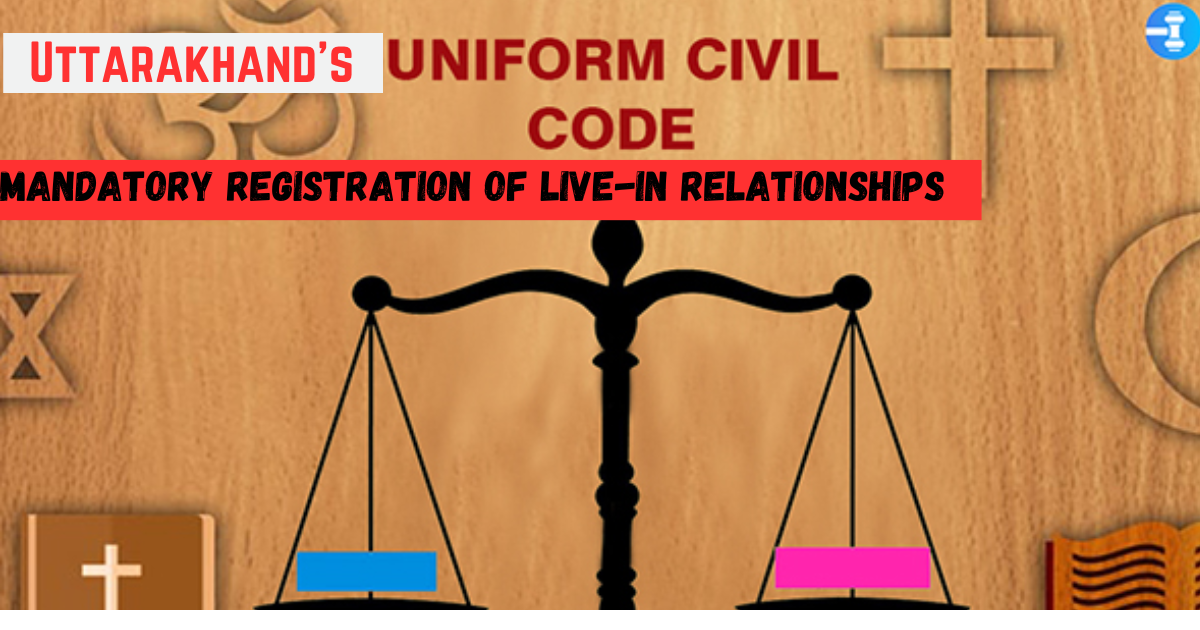Uttarakhand Uniform Civil Code: Balancing Rights and Regulation

Uttarakhand has recently made headlines by becoming the first state in India to enact a Uniform Civil Code (UCC), aimed at standardizing personal laws across religions. While is a progressive move towards equality and uniformity, certain provisions of the UCC have sparked controversy, particularly regarding live-in relationships. In this blog, we delve into the implications of these provisions and the broader debate surrounding individual rights and state intervention.
Background of the UCC:
- The UCC in Uttarakhand seeks to apply uniform civil laws to all citizens, irrespective of their religious affiliations, in line with Article 44 of the Constitution.
- While the initiative has been hailed as a step towards modernization and equality, concerns have been raised regarding the lack of extensive public consultation and legislative debate.
Mandatory Registration of Live-in Relationships:
- One of the contentious aspects of the UCC is the requirement for mandatory registration of live-in relationships.
- Couples entering into a live-in arrangement are obligated to notify the registrar within a month, akin to formal marriage contracts.
- Non-compliance with registration mandates may result in criminal penalties, raising questions about individual privacy and personal liberty.
Criticism and Constitutional Concerns:
- Critics argue that the provision for mandatory registration infringes upon the privacy rights of individuals and transforms informal relationships into rigid legal constructs.
- The UCC’s definition of live-in relationships as exclusively heterosexual and its imposition of criminal penalties for non-registration have drawn criticism for their potential to stifle personal freedoms.
State’s Justification and Public Response:
- State officials cite concerns over crimes involving live-in couples as the rationale behind the registration mandate, emphasizing the need for protection, particularly of young girls.
- However, critics contend that such paternalistic measures encroach upon personal freedoms and fail to address underlying issues effectively.
Impact on Women and Children:
- The UCC’s provisions regarding maintenance for deserted partners and legitimacy of children born in live-in relationships mirror existing legal frameworks but codify them into law.
- While intended to provide legal safeguards, these provisions also raise questions about potential vulnerabilities and gender dynamics within live-in arrangements.
Conclusion: The introduction of the Uniform Civil Code in Uttarakhand marks a significant development in India’s legal landscape, aiming to foster uniformity and equality across personal laws. However, the controversy surrounding provisions related to live-in relationships underscores the delicate balance between state regulation and individual autonomy. As debates continue to unfold, it remains imperative to prioritize the protection of individual rights while addressing societal concerns within a framework of constitutional principles and social justice.